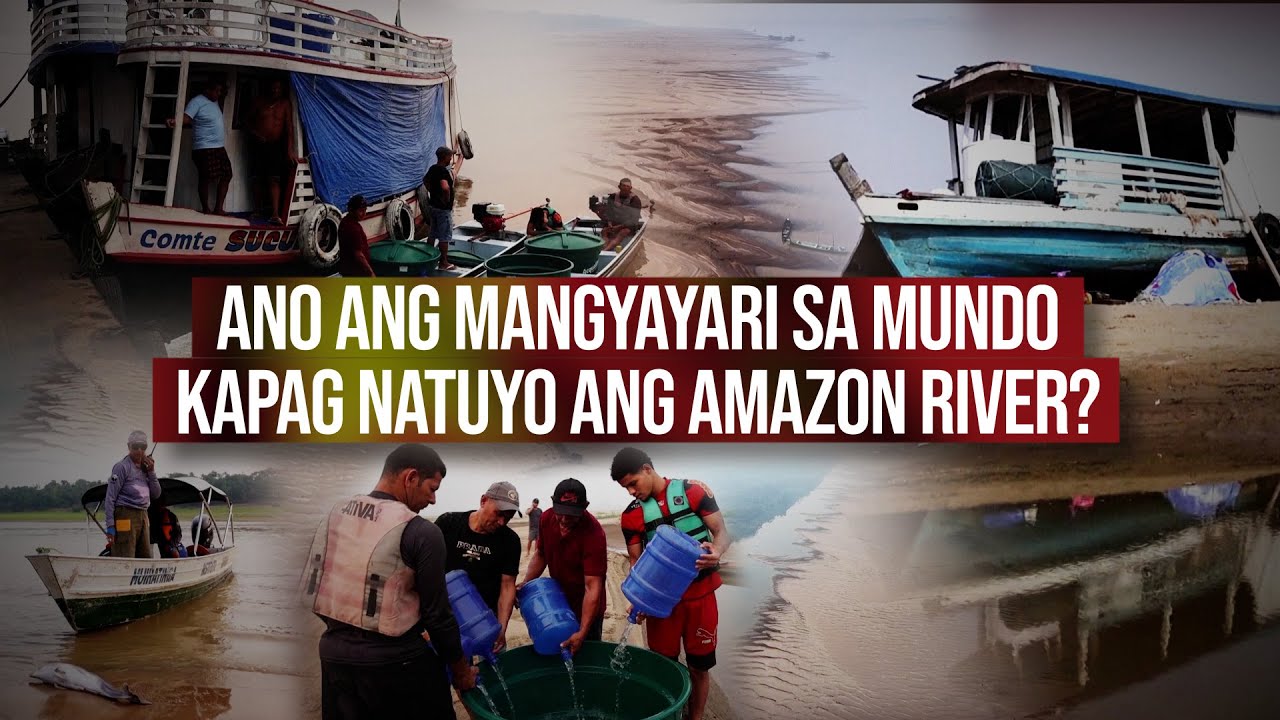Indigenous activists support cancellation of Keystone XL pipeline project
Summary
TLDRAriel Durange, Executive Director of Indigenous Climate Action and member of the Athabasca Chipewyan First Nation, discusses the environmental and community impacts of oil and gas development in Canada. She emphasizes the destabilization of ecosystems, water contamination, and diminished health in her community. Ariel critiques the economic pressures that force Indigenous leaders to support pipeline projects, despite their harmful effects. She rejects the idea of using clean energy to develop fossil fuels and calls for a shift towards sustainable energy solutions that respect Indigenous land rights and the climate crisis.
Takeaways
- 🌍 Ariel Duran Jay, Executive Director of Indigenous Climate Action, supports President Biden's climate-related announcement.
- 🌱 Canada has signed the Paris Agreement and promised to respect Indigenous rights, yet oil and gas projects continue to impact Indigenous communities.
- 💧 The oil sands development, one of the largest on Earth, has destabilized ecosystems, impacting water quality, air, and the health of surrounding Indigenous communities.
- 🚧 Indigenous leaders face tough decisions between supporting the oil industry for economic reasons and protecting their lands and treaty rights.
- 💼 Some Indigenous leaders, like Chief Adam, have advocated for owning pipelines to gain more control and benefit from these projects rather than being sidelined.
- 🛢 Ariel criticizes the hypocrisy of using clean energy to develop 'dirty' fossil fuels, calling for a transition away from reliance on unsustainable energy sources.
- 🔧 Ariel acknowledges the safety improvements in pipeline infrastructure but argues that fossil fuels should not be used in the first place due to their environmental harm.
- 💬 Ariel expresses disappointment that Canada's leaders, including Prime Minister Trudeau, have supported the Keystone XL pipeline while the U.S. has taken a stronger stance under Biden.
- 💡 Ariel calls for a shift towards clean energy that is accessible to all, not just big corporations, and urges governments to transition workers to sustainable jobs.
- 🌎 Ariel emphasizes that politicians are failing in their duty to uphold commitments to Indigenous communities and the Paris Agreement.
Q & A
What is Ariel Duran Jay's position on the announcement from Biden regarding the oil and gas industry?
-Ariel Duran Jay welcomes the announcement as a step in the right direction, emphasizing Canada's commitments to climate change and indigenous rights.
How does the oil sands development impact the environment and indigenous communities according to Ariel Duran Jay?
-The oil sands development leads to the destabilization of ecosystems, water table issues, water contamination, air quality problems, and a decline in the quality of life for indigenous communities.
What are the implications of the oil and gas industry on the practice of treaty and aboriginal rights by indigenous communities?
-The industry affects the ability of indigenous communities to safely practice hunting, fishing, and trapping, as well as accessing their traditional territories.
What is Ariel Duran Jay's view on the argument that pipelines bring jobs to indigenous communities?
-She acknowledges the complex situation where leaders are pressured to support pipelines for economic reasons, despite the environmental and health impacts on their communities.
How does Ariel Duran Jay respond to the idea of indigenous ownership of pipelines as a form of control?
-She sees it as a difficult choice made by leaders who feel forced into an economy reliant on dirty energy, with the hope of having some control over projects that will proceed regardless.
What does Ariel Duran Jay think about TC Energy's announcement of a pipeline powered by renewable energy?
-She views it as hypocritical to use clean energy to develop dirty energy sources and argues that everyone should have access to clean energy instead.
What is Ariel Duran Jay's stance on the argument that pipelines are safer than other forms of transport for oil?
-She argues that even if pipelines are safer, they still transport a harmful product that is damaging to the environment and should not be used.
How does Ariel Duran Jay feel about the Canadian government's support for the Keystone XL pipeline compared to Biden's stance?
-She finds it refreshing that Biden is taking a different stance, but also expresses disappointment in Canadian governments for not shifting away from fossil fuels sooner.
What does Ariel Duran Jay suggest as an alternative to the current reliance on fossil fuels?
-She advocates for a swift transition away from fossil fuels, with governments taking responsibility for supporting workers and remediating lands.
What is Ariel Duran Jay's opinion on the importance of respecting indigenous rights over land and territories?
-She stresses the importance of upholding treaty rights and allowing indigenous nations to control their lands and territories, which is not currently being done.
How does Ariel Duran Jay view the role of governments in transitioning to a sustainable economy?
-She believes governments should be proactive in building sustainable economies and systems, ensuring everyone has access to clean energy, not just large corporations.
Outlines

Esta sección está disponible solo para usuarios con suscripción. Por favor, mejora tu plan para acceder a esta parte.
Mejorar ahoraMindmap

Esta sección está disponible solo para usuarios con suscripción. Por favor, mejora tu plan para acceder a esta parte.
Mejorar ahoraKeywords

Esta sección está disponible solo para usuarios con suscripción. Por favor, mejora tu plan para acceder a esta parte.
Mejorar ahoraHighlights

Esta sección está disponible solo para usuarios con suscripción. Por favor, mejora tu plan para acceder a esta parte.
Mejorar ahoraTranscripts

Esta sección está disponible solo para usuarios con suscripción. Por favor, mejora tu plan para acceder a esta parte.
Mejorar ahoraVer Más Videos Relacionados

Rockstar Neil Young on anti-oil sands tour

Peace River Rising: The link between violence against Indigenous women and violence against the land

Ano ang mangyayari sa mundo kapag natuyo ang Amazon River? | Need To Know

TEDxSFU Ta'Kaiya Blaney

There is No Such Thing as Indigenous Art!

Documentário: Neoextrativismo na América Latina: resistências e alternativas
5.0 / 5 (0 votes)
